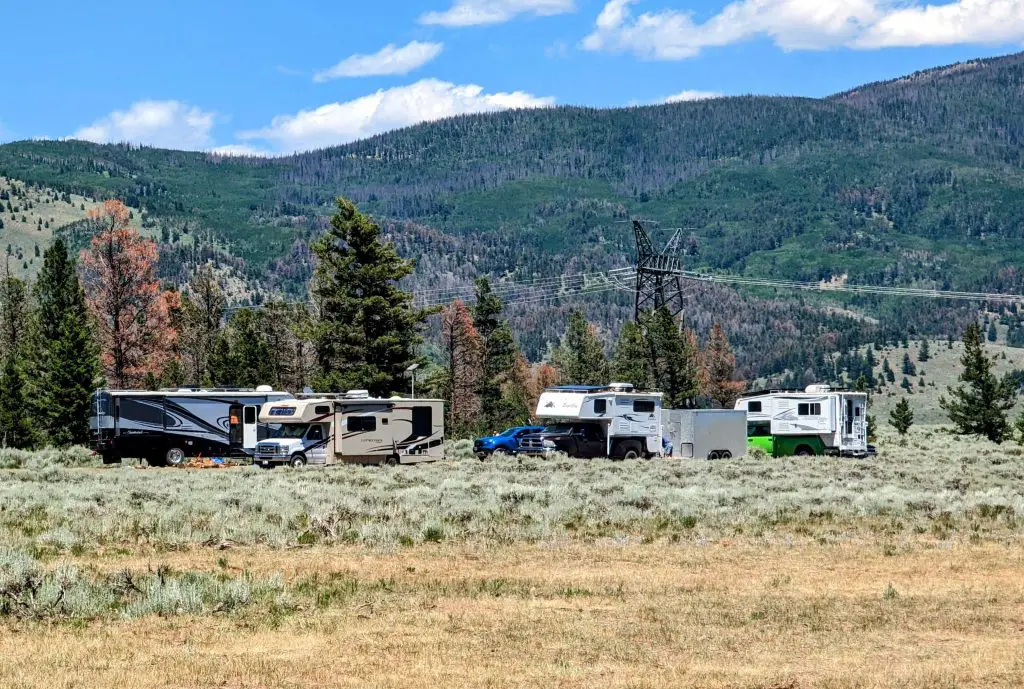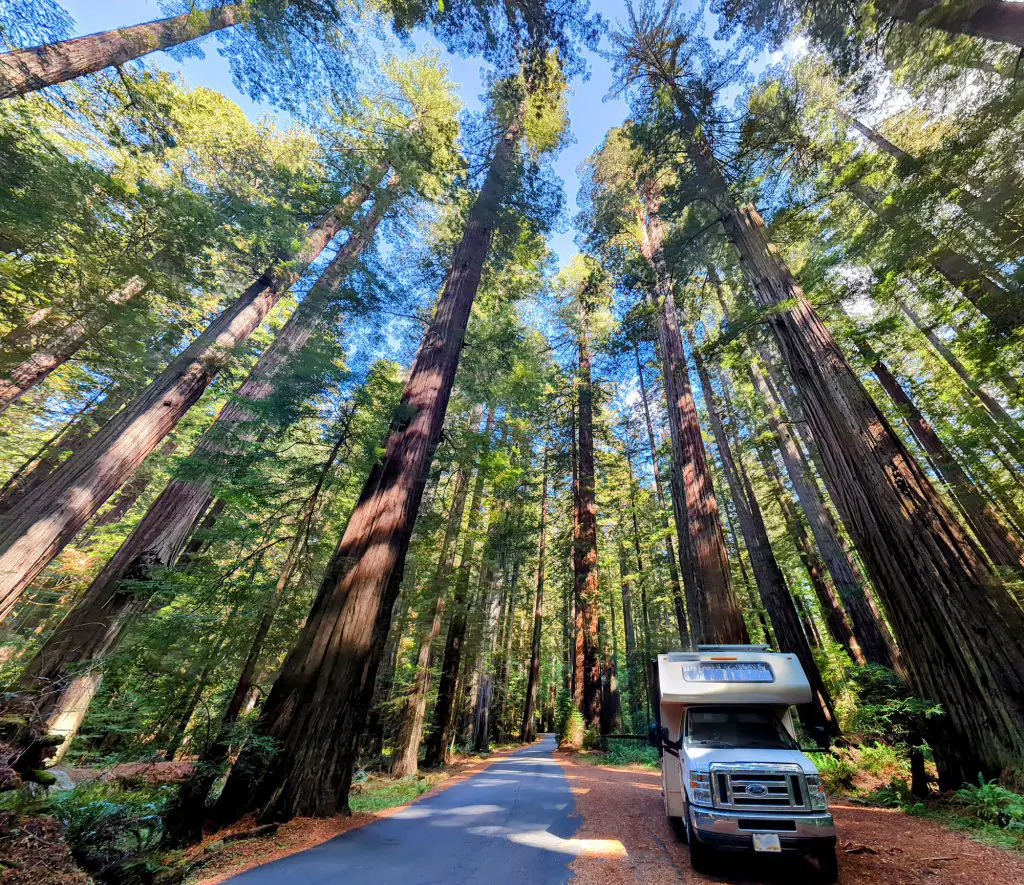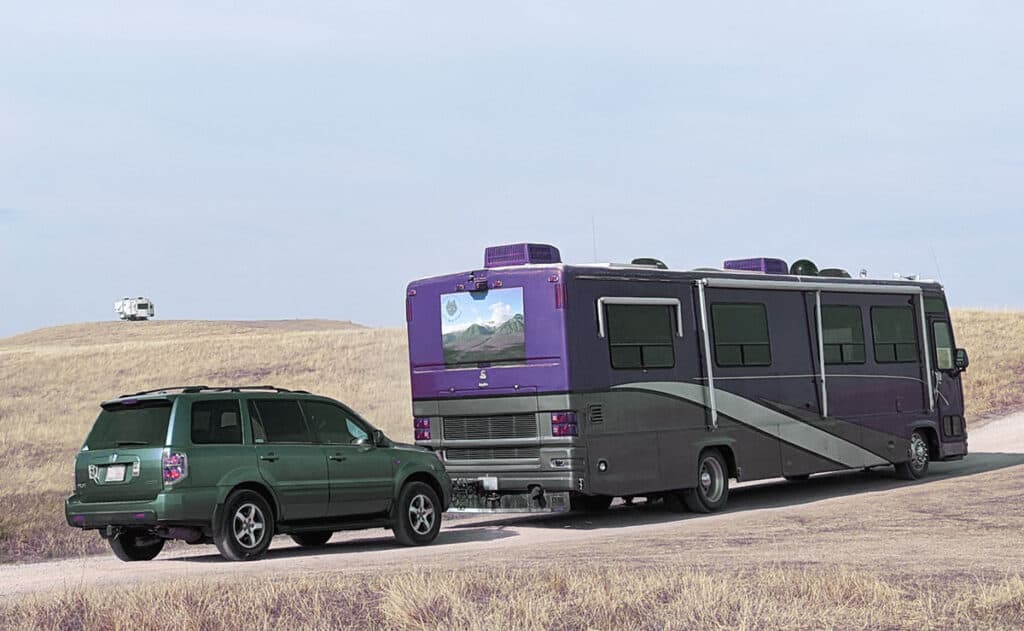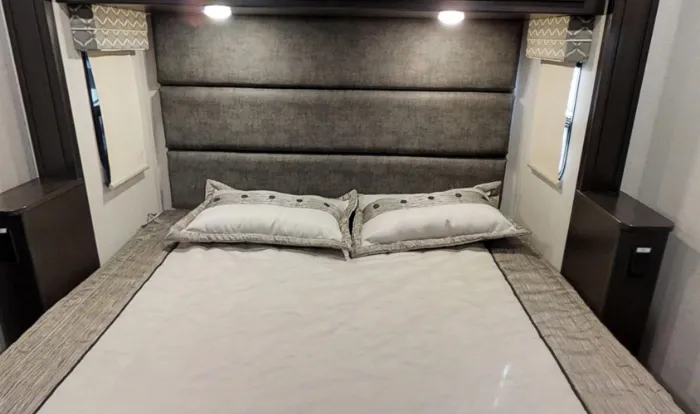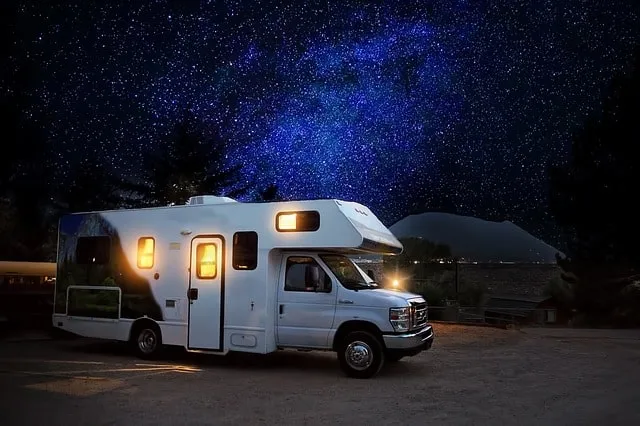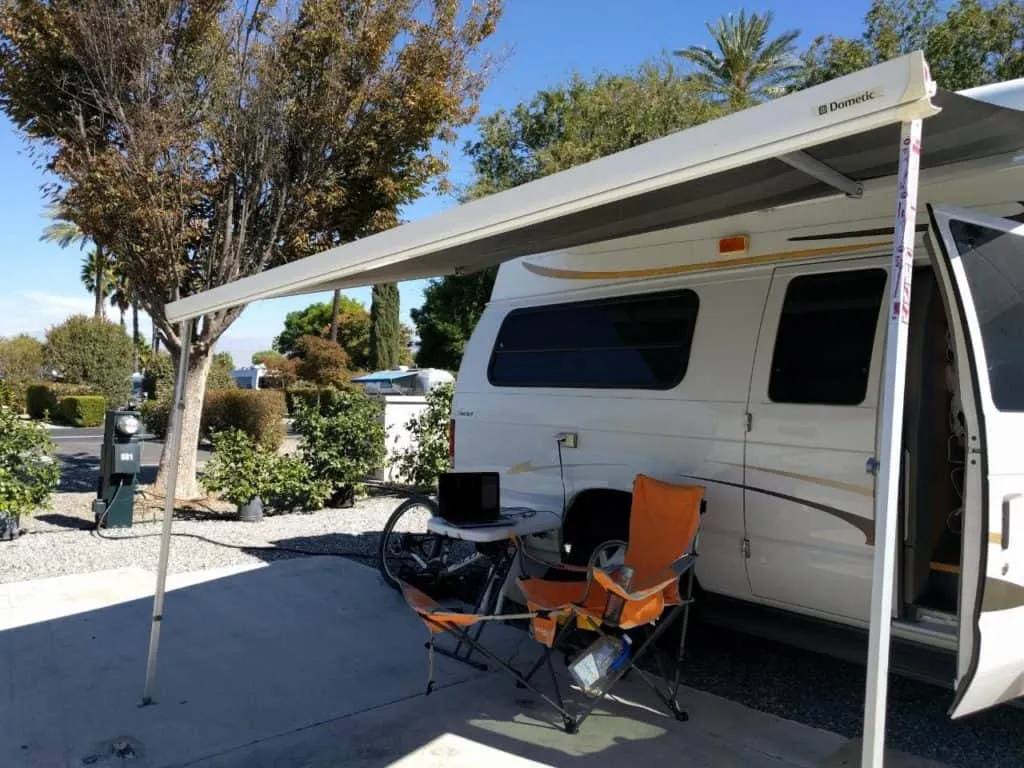Last Updated on February 13, 2024
Key Takeaways:
- Assess Needs: Evaluate travel frequency, group size, amenities, and destinations for a tailored RV choice.
- Budget Planning: Set a realistic budget, weighing new vs. used options and considering ongoing expenses.
- Explore RV Types: Familiarize with motorhomes, trailers, and vans to match preferences and lifestyles.
- Visit Shows and Dealerships: Attend events to view models firsthand and gather expert advice.
- Anticipate Upgrades: Understand that your first RV may not meet all needs, allowing for future upgrades.
- Quality Inspection: Inspect potential RVs thoroughly for structural integrity, water damage, and craftsmanship.
- Test Drive: Assess handling and comfort through test drives, ensuring suitability for driving preferences.
- Consider Towing: Check tow vehicle capacity and storage needs to match with the chosen RV.
- Review and Recommendations: Research online reviews and seek advice from experienced RVers for insights.
- Professional Inspection: Consider hiring a professional to evaluate mechanical, electrical, and structural aspects before purchase.
Purchasing your first RV is an exciting adventure, but it requires careful consideration to ensure you find the perfect fit for your needs. Here is a comprehensive guide to help first-time buyers make an informed decision:
Assess Your Needs
Start by assessing your specific requirements and how you plan to use the RV. Consider factors such as the number of people traveling with you, desired amenities, travel frequency, and intended destinations. This will help you determine the size, layout, and features that best suit your lifestyle.
When choosing an RV as a solo RVer, couple, or family, there are specific factors to consider that cater to the unique needs of each group:
Solo RVers:
-
- Size and Maneuverability: Solo RVers may prefer smaller RVs that are easier to maneuver and park, allowing for greater flexibility in exploring various destinations.
- Sleeping Arrangements: Look for RVs with single beds or convertible spaces that can accommodate solo travelers comfortably.
- Storage Space: Consider the amount of storage available for personal belongings, camping gear, and other essentials, as solo RVers may require less storage compared to larger groups.
- Workstation: If you plan to work on the road, prioritize RVs that provide a dedicated workspace, such as a built-in desk or a convertible dinette area.
- Safety and Security: Ensure the RV has reliable security features, such as sturdy locks and alarm systems, as solo travelers may have unique concerns about safety.
Couples:
-
- Bed Size and Comfort: Look for RVs with larger bed options, such as queen or king-sized beds, to ensure comfortable sleeping arrangements for both individuals.
- Privacy: Consider RV layouts that provide separation between sleeping areas and living spaces, allowing each person to have their own space when desired.
- Entertainment: Look for RVs with entertainment options, such as a TV, audio system, or outdoor speakers, to enhance the overall camping experience for couples.
- Cooking and Dining: Prioritize RVs with a well-equipped kitchen and adequate dining space, allowing couples to prepare and enjoy meals together.
- Connectivity: If staying connected is important, consider RVs with good internet connectivity options to support remote work or entertainment needs.
Families:
-
- Sleeping Capacity: Look for RVs with enough sleeping areas to accommodate all family members comfortably. This may include bunk beds, convertible dinettes, or sofa beds.
- Child Safety: Ensure the RV has child safety features like secure bunk bed ladders, seat belts, and childproof locks to keep young ones safe while on the road.
- Storage and Organization: Consider RVs with ample storage options to accommodate the needs of a family, including space for toys, clothing, and outdoor gear.
- Bathroom Facilities: Families may prefer RVs with larger bathrooms or separate toilet and shower areas to accommodate multiple individuals.
- Entertainment and Connectivity: Look for RVs with entertainment features like TVs, gaming systems, or Wi-Fi connectivity to keep children entertained during travel.
Consider Your Budget
Set a realistic budget for your RV purchase, taking into account not just the initial cost but also ongoing expenses like insurance, maintenance, and campground fees. Determine what you can comfortably afford and stick to that range while considering financing options if needed. But should you get a new or used RV?
Deciding between a new or used RV is a personal choice that depends on various factors. Here are some considerations to help you make an informed decision:
New RV:
- Customization: Purchasing a new RV allows you to select the exact features, floor plan, and amenities that suit your preferences and needs. You have the opportunity to personalize the RV to your liking.
- Warranty and Condition: New RVs typically come with manufacturer warranties, providing peace of mind against potential defects or issues. You can expect the RV to be in excellent condition, with all components and systems in proper working order.
- Latest Features and Technology: Newer RV models often incorporate the latest advancements in technology, energy efficiency, and safety features. You can enjoy modern amenities and conveniences that may not be available in older models.
- Reduced Maintenance: With a new RV, you’re less likely to encounter immediate repair or maintenance needs, as everything is brand new. This can result in lower maintenance costs in the initial years of ownership.
Used RV:
- Cost Savings: One of the main advantages of buying a used RV is the potential for cost savings. Used RVs generally have a lower price tag compared to new models, allowing you to get more for your budget or potentially afford a higher-quality unit.
- Depreciation: New RVs experience significant depreciation in their early years of ownership. By purchasing a used RV, you avoid the steeper depreciation curve, potentially getting more value for your investment.
- Immediate Availability: Used RVs are readily available on the market, giving you a wider selection to choose from. You may find older models that are no longer in production but still meet your needs.
- Lower Insurance Costs: Insuring a used RV is typically less expensive than insuring a new one. This can result in lower monthly premiums and long-term savings on insurance costs.
Research RV Types
Familiarize yourself with the different types of RVs available, including motorhomes (Class A, B, B+ or C), travel trailers, fifth wheels, or camper vans. Each type has its own advantages and considerations, such as size, maneuverability, and living space. Research and understand the pros and cons of each type to find the one that suits your needs best. Here is my article about the Types Of RVs
Visit RV Shows and Dealerships
Attend RV shows or visit local dealerships to explore different models and see them firsthand. This will allow you to step inside various RVs, get a feel for the layouts, and assess the quality of construction and available features. Take your time to ask questions and gather information from experienced salespeople.
Consider Layout and Floor Plan
Look for an RV layout and floor plan that matches your preferences and accommodates your travel needs. Consider factors such as sleeping arrangements, bathroom facilities, kitchen amenities, storage space, and overall comfort. Visualize yourself living in the RV and ensure it provides the functionality and comfort you desire.
The First RV Won’t Be The Last RV
Your first RV probably won’t be your last RV. There are several reasons why people often go through multiple RVs throughout their RVing journey:
- Learning Curve: When you purchase your first RV, you are new to the RVing lifestyle and may not have a clear understanding of your specific needs and preferences. As you gain experience and knowledge, you may discover aspects of RVing that you didn’t initially consider important. This newfound understanding can lead to a desire for a different type, size, or layout of RV that better aligns with your evolving needs and lifestyle.
- Changing Needs and Lifestyle: As life circumstances change, so do your RVing needs. Factors such as family size, travel preferences, hobbies, and interests can evolve over time. For example, a couple who initially traveled alone in a small camper van may later decide to upgrade to a larger motorhome to accommodate their growing family or desire for more space and amenities.
- Upgrading for Comfort and Convenience: Your first RV experience can highlight certain features or amenities that you feel are lacking or could be improved upon. Upgrading to a newer or different RV model allows you to enjoy enhanced comfort, convenience, and technology that may not have been available in your first RV.
- Exploring Different RVing Styles: RVing encompasses a wide range of styles, from full-time RV living to weekend getaways and everything in between. As you gain more experience, you may be drawn to try different types of RVing, such as boondocking, off-roading, or luxury RV resorts. Each style may require a different type or size of RV, prompting you to explore new options.
- Market Availability and Innovation: The RV market is constantly evolving, with manufacturers introducing new models, innovative features, and improved designs. As you become aware of these advancements, you may be tempted to upgrade to take advantage of the latest technologies, improved fuel efficiency, or more spacious layouts.
Inspect the Quality
When examining potential RV options, pay attention to the build quality, materials used, and overall condition. Look for signs of water damage, structural issues, or poor craftsmanship. Carefully inspect the interior and exterior to ensure it is well-maintained and free from significant flaws. Here is my article with my used RV buying checklist.
Take a Test Drive
If considering a motorhome or camper van, request a test drive to experience its handling, maneuverability, and driving comfort. This will help you assess whether you are comfortable behind the wheel and can easily navigate the vehicle.
Consider Storage and Towing Capacity
If opting for a travel trailer or fifth wheel, ensure your tow vehicle has the appropriate towing capacity. Take into account the weight of the RV, additional cargo, and the towing capacity of your vehicle. Also, consider storage options for your RV when not in use, such as garage space or RV storage facilities.
Read Reviews and Seek Recommendations
Research online reviews and seek recommendations from experienced RVers or RV owner communities. Learn from their experiences and insights to gain a better understanding of specific RV brands, models, and potential issues to watch out for.
Get a Professional Inspection
Before finalizing the purchase, consider hiring a professional RV inspector to thoroughly assess the RV’s condition, including mechanical systems, electrical components, plumbing, and structural integrity. This can help uncover any hidden issues and provide peace of mind.
Ultimately, choosing the perfect RV involves careful consideration of your needs, budget, and preferences. Take your time, do thorough research, and make an informed decision that will bring you joy and unforgettable adventures on the open road.
Last update on 2024-04-24 / Affiliate links / Images from Amazon Product Advertising API


